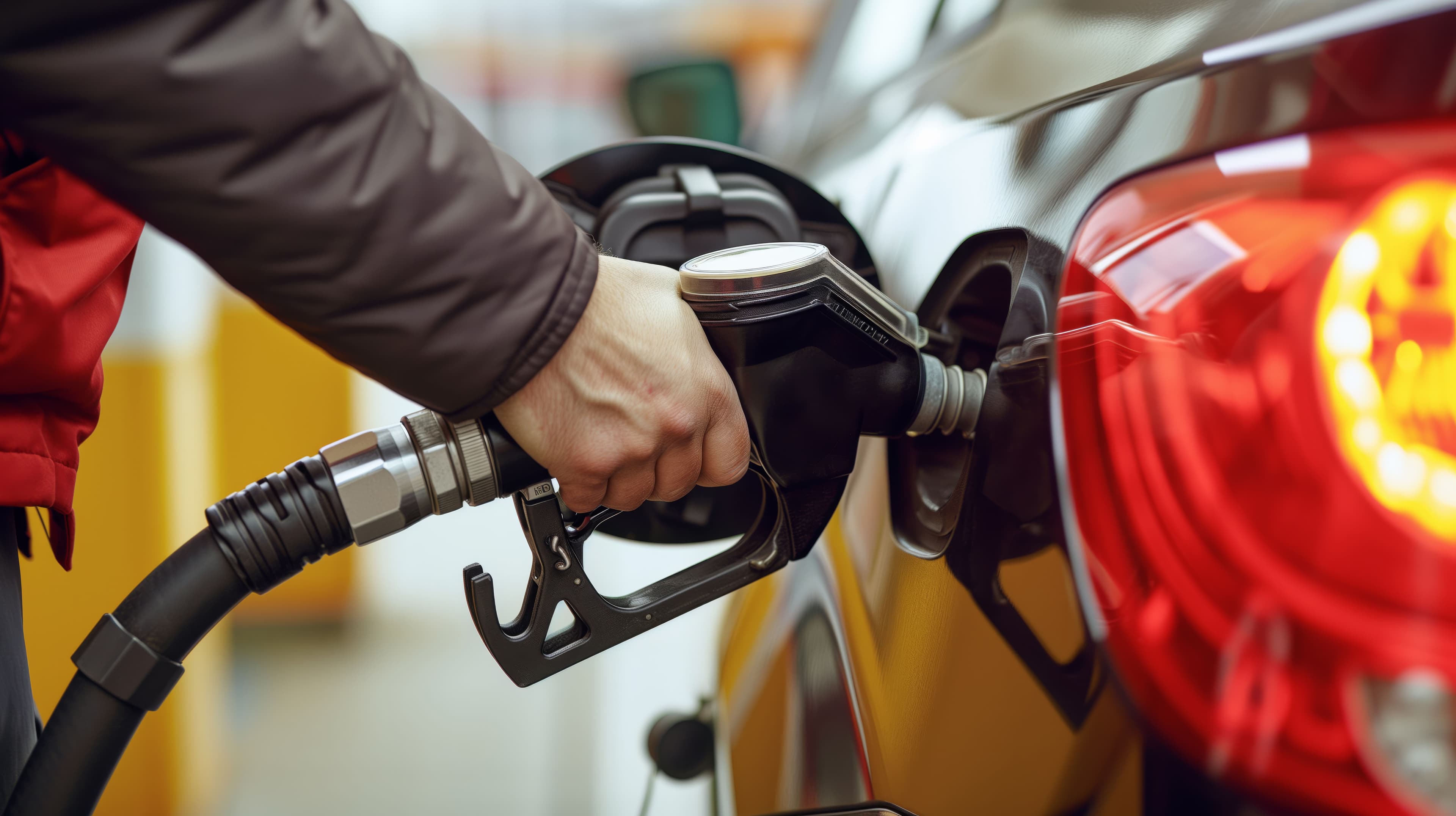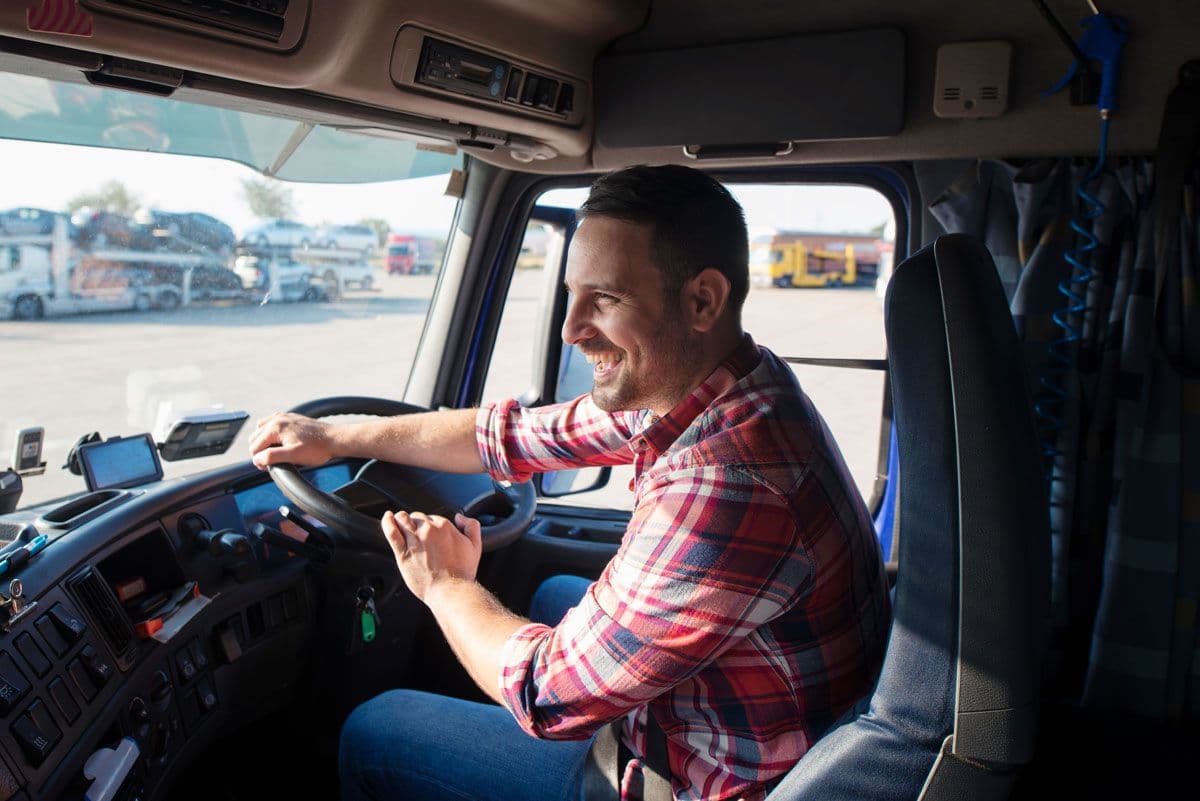
It's a common sight: vehicles sitting idle in car parks, lay-bys, and traffic jams with their engines running. While it might seem harmless, idling is a hidden thief, draining fuel and contributing to environmental damage. In this guide, we explore the hidden costs of idling, from fuel waste to vehicle wear and tear, providing practical solutions on how fleet managers can reduce how much fuel is wasted by idling.
Does idling waste fuel?
Yes, idling wastes fuel. Fuel is constantly being burned when an engine is on, even when it’s not being used to accelerate. Any fuel burned at a standstill is wasted, since it hasn’t been used to achieve anything. It’s a sunk cost - and the more it happens, the more it’s going to cost you.

How much fuel does a car use idling?
According to a study by the U.S. Argonne National Laboratory, the fuel consumption of idling is largely related to a vehicle’s size. One large petrol vehicle was tested for its fuel consumption, alongside two compact vehicles: one diesel and one petrol. While these figures can be used as a general estimate, how much fuel a car uses while idling could vary according to the type of vehicle, its size and its energy efficiency rating.
| Gallons of fuel per hour | Litres of fuel per hour | |
| Compact petrol car | 0.16 | 0.61 |
| Compact diesel car | 0.17 | 0.64 |
| Large petrol car | 0.39 | 1.48 |
How much fuel does a van use idling?
In 2019, 96% of vans in the UK were powered by diesel. Idling fuel consumption can be especially pricey when you have a diesel fleet, especially if your vehicles are regularly caught in traffic. Considering that a vehicle’s size increases its fuel consumption, a fleet of vans idling in traffic could cost a company a significant amount of money.
| Gallons of fuel per hour | Litres of fuel per hour | |
| Van | 0.84 | 3.18 |
How much fuel does a HGV use idling?
It stands to reason that a HGV uses far more fuel than a car or a van, even when idling. The size of the engine, partnered with the power it needs to move such heavy loads, both play into the additional fuel consumption while idle. American trucks are designed differently to HGVs in the UK, but the statistics collected by the Argonne National Laboratory can still be used as a baseline to estimate how vehicles of the same size and weight would consume fuel when idling.
| Truck (HGV) by weight | Gallons of fuel per hour | Litres of fuel per hour |
| 26,000 lb | 0.59 | 2.23 |
| 23,000–33,000 lb | 0.44 | 1.67 |
| 32,000 lb | 0.49 | 1.86 |
| 37,000 lb | 0.90 | 3.41 |
| 80,000 lb | 0.64 | 2.42 |
How does idling affect a vehicle?
Idling doesn’t just affect fuel consumption; it can also cause wear and tear on the vehicles themselves. Here are a few of the ways a fleet could be affected by idling habits:
Carbon build-up: When a vehicle is idle, it doesn’t burn fuel as completely as it does during acceleration. This partial combustion process is more likely to leave carbon deposits in the engine, reducing the fuel efficiency of the vehicle long-term.
Engine stress: While an engine is idling, less oil is being used to lubricate it. This can cause dirt build up, which creates friction and causes wear and tear between the components.
Oil complications: Certain parts of the engine may not be completely sealed while the vehicle is idling. This can cause hot gas to leak into other components and damage the oil film.
What problems can idling cause a company?
Idling is bad for any vehicle, but it can also be bad for your company. From an increased carbon footprint to higher fuel costs, there are plenty of problems that can arise:
High carbon footprint: An idling engine may produce twice the carbon emissions of a moving car. If your fleet frequently idles, it can offset your impact reduction efforts and reverse your progress towards carbon neutrality.
Higher fuel costs: Drivers need to refill their tanks far more often when they’re burning unnecessary fuel. This can drive up expenses and impact your company’s financial performance.
Maintenance fees: Wear and tear can become expensive quickly. The best way to reduce the costs of mechanic call-outs and vehicle upkeep is to ensure that your drivers are treating your fleet well in the first place.

How to prevent your drivers from idling
From high repair costs to extra fuel usage, idling can throw a spanner in the works for any business. If your drivers are frequently idling in their vehicles - especially in vans or HGVs - it’s important to take steps to prevent the behaviour in future. There are plenty of ways to do this, from tracking your vehicles to running training on fuel efficient driving.
GPS tracking for fleet vehicles
Vehicle tracking is one of the most effective ways to ensure that your vehicles are being driven correctly. With GPS trackers attached to your fleet, managers will be able to monitor the activity of your drivers and can pinpoint problem areas such as frequent idling. Since idling is a difficult problem to catch with common installations such as dash cams, tracking the whole vehicle can help to catch bad habits you might otherwise miss.
Kinesis tracking: Kinesis is a way for you to track your driver’s performance as well as its location and route. You’ll be able to see whether your employees are deploying bad practices while driving, such as idling, harsh braking or speeding. You can also run reports on the statistics of your fleet, which may flag up problem areas for you to address.
Stratus tracking: The Stratus GPS trackers are designed to give you a full run-down on the health and activity of your fleet engines. That includes live updates, alerts and real-time tracking on a 4G network. Partnered with Kinesis, Stratus will allow you to receive notifications when your drivers are displaying idling and other bad driving habits on the road.
Stop idling, start saving
Idling is a costly habit, both for your business’ bottom line and the environment. By understanding the impact of idling and implementing strategies to minimise it, fleet managers can significantly improve fuel efficiency, reduce emissions, and save money for their business.

Monitor driver performance with telematics
Speak to one of our team about how telematics can save your business money through driver monitoring.